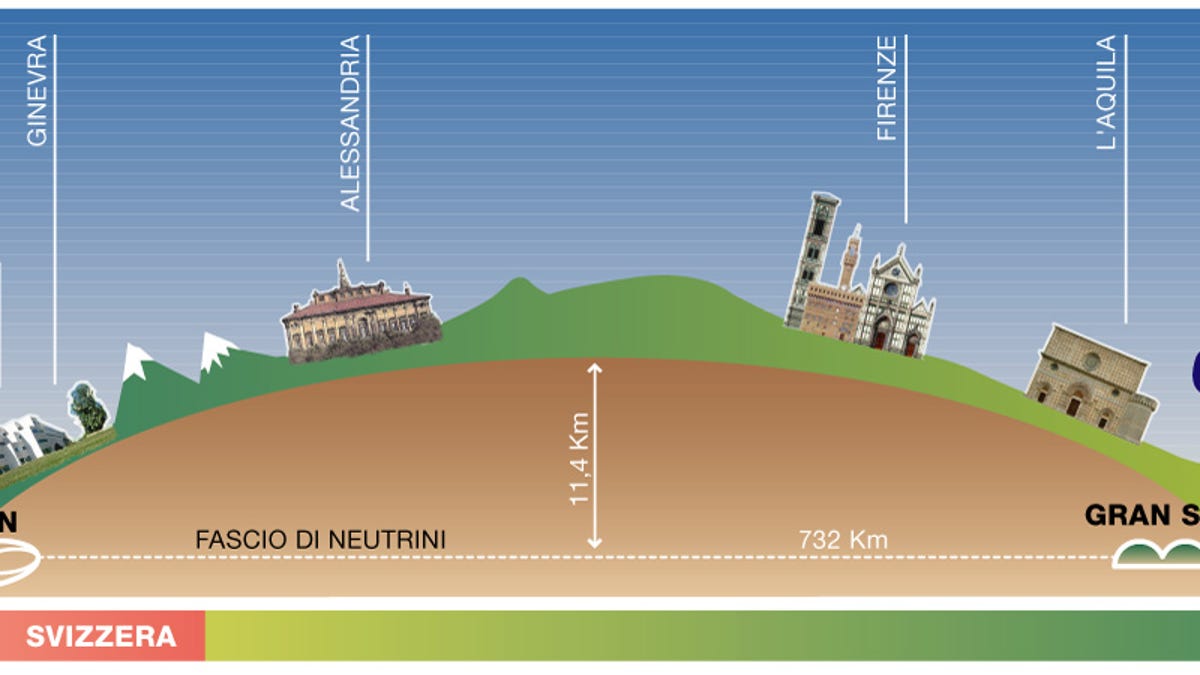Reclocked CERN neutrinos still break the speed limit
A first round of error checking has shown subatomic particles still travel faster than the speed of light, but physicists want more confirmation before drawing any conclusions.

The physics surprise that rattled scientists in September--neutrinos seemingly traveling faster than the speed of light--has withstood one attempt by researchers to poke a hole in their own findings.
Earlier this year, the researchers clocked the subatomic particles traveling through the Earth from the CERN particle accelerator near Geneva, Switzerland, to Italy's INFN Gran Sasso Laboratory 730 kilometers away. The result, if it holds up under scrutiny, challenges a core physics belief established by Albert Einstein that nothing can travel faster than light.
The new experiment used shorter bursts of neutrinos for more precise measurements, and it produced much the same result.
"After many months of studies and cross-checks we have not found any instrumental effect that could explain the result of the measurement," said Antonio Ereditato of the University of Bern and spokesman for the OPERA experiment that produced the paper. "While OPERA researchers will continue their studies, we are also looking forward to independent measurements to fully assess the nature of this observation."
The researchers still think it's premature to tackle the implications of the finding.
"The potential impact on science is too large to draw immediate conclusions or attempt physics interpretations. My first reaction is that the neutrino is still surprising us with its mysteries," Ereditato said.
The researchers shared their results in a new paper published at the Arxiv repository of research that hasn't yet made it through the time-consuming peer-review process.

